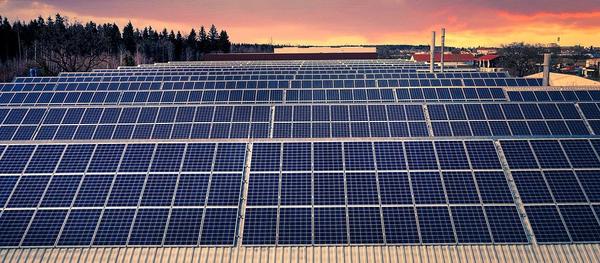Now you can support clean energy easily

India is well known for its immense biological diversity, and the numerous traditional usages of these unique plants. For generations upon generations, this knowledge was passed down from parent to child, and it was possessed by the indigenous people and communities in the country.
However, before the enactment of the Biological Diversity Act of 2002, this traditional knowledge was under threat from biopiracy, the exploitation of resources by commercial establishments for their profit.
These establishments would unfairly apply patents to genetic resources and traditional knowledge, without any previously-given permission from these indigenous communities. However, the Biological Diversity Act allowed tradition to flourish once again.
The Biological Diversity Act was worked on by many biodiversity activists, including Professor Ahswini Chhatre from the Indian School of Business in Hyderabad. Between 1995 and 2001, he worked closely with Madhav Gadgil, an Indian ecologist.
Many people came together to pitch for this enactment, which came about through local communities working with NGOs at both the local and national levels, all brought together by Madhav at the Center of Ecological Sciences.
This provided them with a safe space to think about the steps that needed to be taken in order to make the situation better. However, the NGOs who are working to advance the clean energy sector also need support ecosystems.
Thus, this resulted in the creation of the Clean Energy Lab. This is an initiative brought about by the Indian School of Business and the Shakti Foundation. It works as a unique incubation program which supports the ideas and evidence that can facilitate research and policy impact in clean energy.
Individuals who want to set up an NGO or founders of a new NGO can apply for the program, which will grant them access to infrastructure, networks, financial support, and the like.
The Clean Energy Lab will identify and incubate five particularly exceptional ideas to create policy action on clean energy in the country.
Thus, it may not be too long before we see a rise in clean energy and clean energy policies in India.
Image by Albrecht Fietz from Pixabay (Free for commercial use)
You may also like
Image Reference: https://pixabay.com/photos/solar-energy-solar-panels-5622969/
Recent Posts
- Teen minds, clean roads: The car bin changing everyday habitsAt The Mann School, a group of students led by Nathan decided they had seen enough litter flying out of car windows.
- Kerala set to be officially renamed ‘Keralam’The term ‘Keralam’ reflects how the state is referred to in Malayalam.
- Currency shower at Tarn Taran wedding goes viralA lavish wedding celebration in Tarn Taran on February 14 has taken social media by storm after a video showed guests showering the bride and groom with currency notes. Claims that crores were spent have been denied, with organisers stating that around ₹3 lakh was showered during the festivities.
- Teen minds, clean roads: The car bin changing everyday habits
What’s new at WeRIndia.com
News from 700+ sources
-
Matthew Lillard on Quentin Tarantino`s criticism: `Felt like I had died`
-
ESICs role in providing quality care to workers commendable: Shashil Namoshi
-
Hollywood actor Martin Short’s daughter Katherine (42) dies by suicide
-
Sunny Leone says there was silence on Kennedy`s sets due to professionalism
-
Vijay Deverakonda, Rashmika Mandanna to wed in two ceremonies
-
See Photos: Vijay Deverakonda and Rashmikas Wedding Guest List
-
WeRIndia – A News Aggregator
Visit werindia.com for all types of National | Business | World | Politics | Entertainment | Health related news and much more..









Leave a Reply